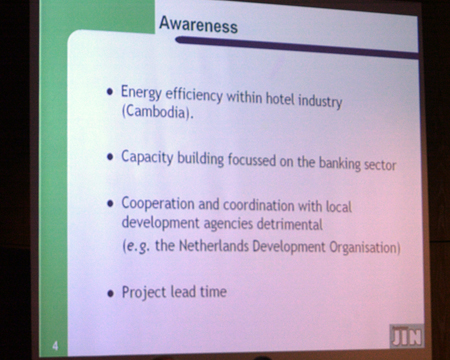 |
||
|
Published by the International Institute for Sustainable Development (IISD)
in cooperation with the UNFCCC Secretariat |
|||
|
Special Report on Selected Side Events at SB 24
|
|||||
| 15-26 May 2006 | Bonn, Germany | |||||
 |
|||
 |
|||
Events convened on Monday, 15 May and Tuesday, 16 May 2006
|
CDM Executive Board: question and answer session Presented by the UNFCCC Secretariat |
||||
|
José Domingos Miguez, Chair of the CDM Executive Board (EB), reported on the 24th meeting of the EB, noting a sharp increase in the number of registered projects, the issuance of certified emission reductions (CERs), and CDM projects in the pipeline. Rajesh Kumar Sethi, Chair of the Methodology Panel, CDM EB, explained that the panel will report on the inputs received on carbon capture and storage methodologies at COP/MOP 2. Hernán Carlino, Chair of the Accreditation Panel, CDM EB, reported progress in accrediting entities. On the issue of the Designated National Authority (DNA) forum, Janos Pasztor, UNFCCC Secretariat, noted that the Secretariat is working with the donors for funding. He highlighted the possibility of holding an informal forum in the coming week. On a question regarding additionalities, Miguez underlined that the new CDM EB Report contains information on the new additionality tool. On funding, Miguez, noted that the new CDM EB report has examined the issue of making public both payments and non-payments to the CDM EB. On the issue of consolidation of methodologies, Miguez indicated that the Board has asked tthe Methodology Panel to revise the approved methodologies to include monitoring of flares. |
||||
|
|||
|
Realizing the full potential of market-based instruments Presented by the International Emissions Trading Association and the World Business Council for Sustainable Development |
|||
|
Adam Kirkman, World Business Council for Sustainable Development, noted that key areas of climate action include enhancing energy efficiency, enabling energy technologies and supporting developing countries.
David Hone, Shell International, presented an overview of carbon market activities and suggested areas for future improvement. Richard Kinley, UNFCCC, stressed the successes and challenges of putting a carbon market in place. Dirk Forrister, Natsource, highlighted that the carbon market system is the centerpiece of current and future climate policy design. He noted some key challenges, such as the geographical distribution of CDM projects and ineligibility of sinks in the EU Emissions Trading Scheme (ETS). Karsten Sach, Federal Ministry of Environment, Germany, noted the importance of a more global and equitable framework for emission reductions and long-term binding sectoral targets. Johannes Heister, World Bank, stressed a future carbon market would include an extension of the ETS and the evolution of CDM and JI. Participants discussed the efficiency of cap-and-trade mechanisms, the role of carbon markets in coal-based economies and the need for expanding into hitherto protected energy markets. |
|||
|
|||
|
Compensated reduction Presented by Environmental Defense |
|||
|
Lisa Moore, Environmental Defense, presented “Compensation Reduction”, a proposal to provide incentives for developing countries to reduce deforestation rates on a voluntary basis and to more actively participate in addressing climate change. She explained that eligible nations that reduce deforestation below a historical baseline would receive emissions allowances tradable in the global carbon market.
Martin Herold, Friedrich-Schiller-University, said monitoring deforestation and identifying deforestation hotspots can be done with confidence, and listed a variety of existing monitoring methods. He highlighted the need for monitoring forest degradation to obtain data on carbon stock changes. Sean Weaver, Victoria University of Wellington, stressed that tropical forests are carbon reservoirs that also provide many climate-related ecosystem services. He stated that the assumption that tropical forests are destined to release their carbon to the atmosphere in a few decades is biased because climate models assume no global reductions since 1991 and the understanding of tropical forest carbon dynamics is incomplete. Discussion: Participants addressed technical challenges to accurate carbon accounting and the permanence of emissions reductions by deforestation avoidance. |
|||
|
|||
|
Best practices and lessons learned in capacity building Presented by the UNFCCC Secretariat |
|||
|
Philip Gwage, Ministry of Water, Land and Environment, Uganda, highlighted the complexities of implementing CDM. He emphasized the need to, inter alia: promote CDM to the private sector; build technical capacity and institutional frameworks; focus on approved methodologies; and develop Project Design Documents.
Makoto Kato, Asia-Pacific Network, underscored the need for both electronic and physical networking between stakeholders. He highlighted networking opportunities via the open electronic network AP-Net and the JICA Training Course on Climate Change. He stressed the importance of informal networking processes. Annie Roncerel, United Nations Institute for Training and Research (UNITAR), presented UNITAR’s Climate Change Capacity Development project and noted the challenge of institutional strengthening, the need to integrate single projects into existing structures and the importance of South-South exchanges. Michael Williams, UNEP, highlighted UNEP’s experiences with building capacity for education, training and public awareness on climate change. He provided an overview of a stakeholder engagement process for identifying stakeholders and priorities in this area, and underscored the difficulties in measuring the impacts of this initiative. David Paterson, UNFCCC, described the utility of the Internet portal CCiNet, a clearing house for capacity-building information. Discussion: Participants emphasized the need to sustain and regenerate capacity and debated how needs for capacity building could best be identified and linked to funding. |
|||
|
|||
|
Climate change and the World Bank - partnerships for the future Presented by the World Bank |
|||
|
Joëlle Chassard, World Bank, presented a paper on the carbon investment framework for 2008-2050 for clean energy and development.
Ian Noble, World Bank, stressed the importance of addressing adaptation holistically and noted the Bank’s efforts in assessing the investment shifts necessary for conducting adaptation. Reporting on the status of the Bank’s carbon funds, Johannes Heister, World Bank, outlined its new approach for carbon finance and initiatives in the carbon market. Sun Cuihua, Office of National Climate Change Coordination Committee, China, focused on CDM in China, highlighting three hydrofluorocarbon projects, the attractive investment environment and the possibility of a CDM fund. Luis Simo Morino, Spanish Ministry of Environment, highlighted Spain’s compliance scenario and emission reduction strategies. Karan Capoor, World Bank, asserted the need to make development issues central to CDM and highlighted the obstacles within CDM rules to achieve this. Mahua Acharya, World Bank, described Carbon Finance Assist, a new capacity-building programme at the Bank that enhances project development and institutional capacity. Discussion: Participants addressed the lack of bankable climate projects, problems in selling small-scale projects to the Bank, CER prices and the possibility of using carbon funds for debt payments. |
|||
|
|||
|
CDM potential projects in Cambodia, Laos and Vietnam Presented by the Foundation Joint Implementation Network |
|||
|
Axel Michaelowa, Hamburg Institute of International Economics, described an EU programme for CDM capacity development in Cambodia, Laos and Vietnam, and highlighted various capacity-building activities undertaken in these countries.
Thy Sum, Ministry of Environment, Cambodia, outlined five projects including the National Biodigester Programme, noting its target of installing 17,500 household biogas plants by 2009. Hoang Manh Hoa, Ministry of Natural Resources and Environment, Vietnam, emphasized that CDM projects contribute to sustainable socio-economic development, poverty reduction and environmental protection in Vietnam. He added that the European funded programme for capacity building helped his ministry single-handedly prepare CDM projects. Syamphone Sengchandala, Science, Technology and Environment Agency, Laos, highlighted potential energy efficiency, hydropower and reforestation CDM projects in Laos. He added that future activities include finalizing the structure of Laos’ Designated National Authority. Friso de Jong, Foundation Joint Implementation Network, discussed lessons learned from the EU programme on capacity building, including the need for cooperation and coordination with local development agencies, and said the programme’s second stage will focus on environmental management. Participants discussed the extent to which Cambodia, Vietnam and Laos need continued development aid. |
|||
|
||
|
Click the above button to go back to our ENB main coverage
|
||
|
|
|
|
|
||
|
-tn.jpg)
0-tn.jpg)
-tn.jpg)
-tn.jpg)
-tn.jpg)
-tn.jpg)
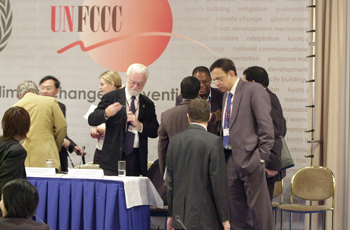
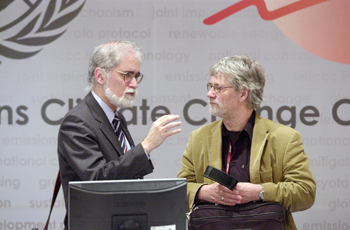
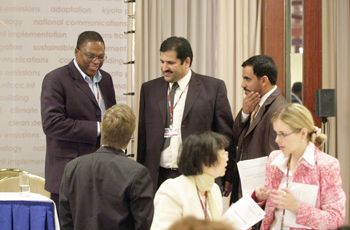
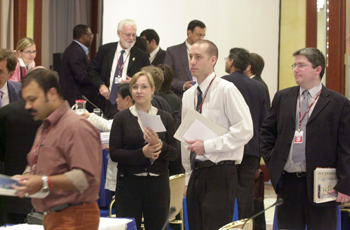
-tn.jpg)
-tn.jpg)
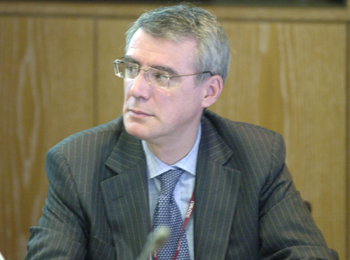

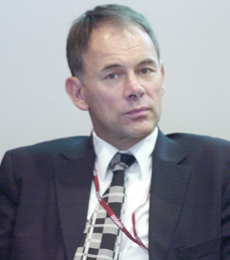
-tn.jpg)
-tn.jpg)
-tn.jpg)
-tn.jpg)
-tn.jpg)
-tn.jpg)

-tn.jpg)
-tn.jpg)
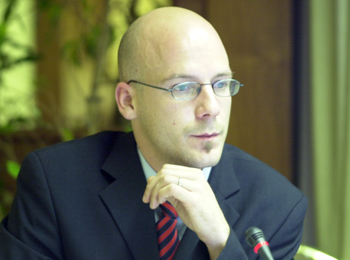
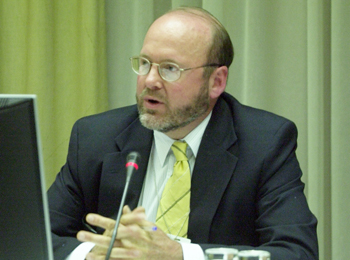
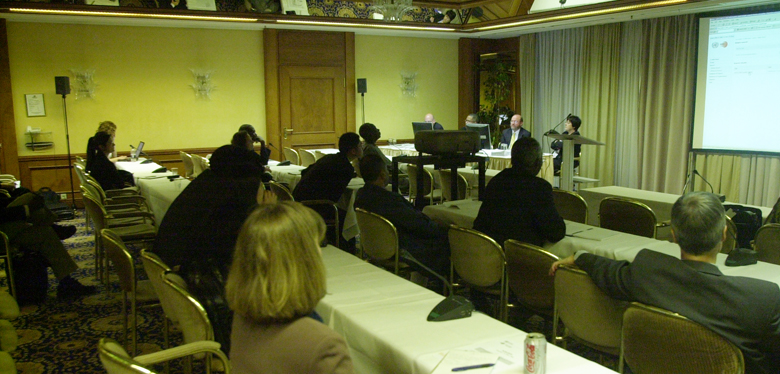
-tn.jpg)
-tn.jpg)
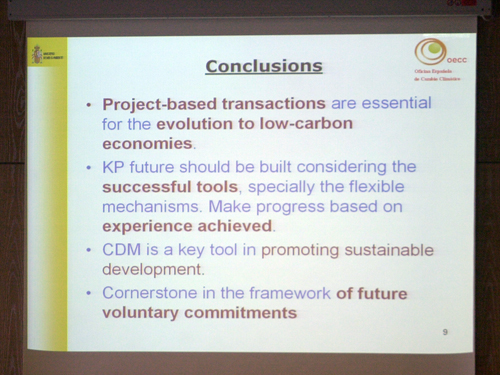
-tn.jpg)
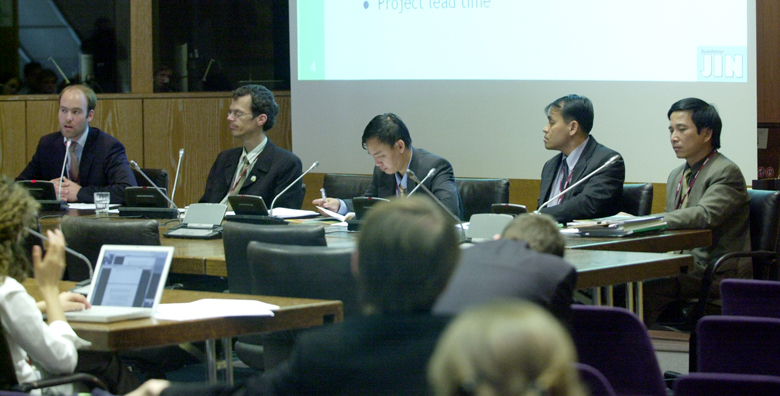
-tn.jpg)
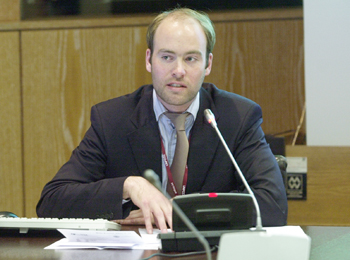
-tn.jpg)
-tn.jpg)
-tn.jpg)
